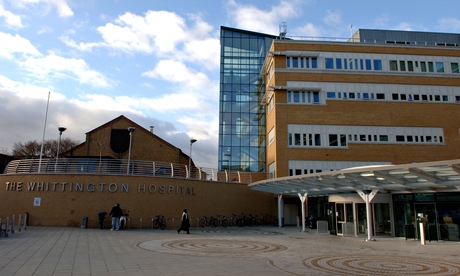
Victims of female genital mutilation could be left bleeding after childbirth because medical staff are now afraid they may be prosecuted if they repair damage in the wrong way, one of the country's leading experts in maternal health has warned.
Prof Peter Brocklehurst, director of the Institute for Women's Health at University College London, said the first ever charges announced last week against a doctor who is said to have repaired a mutilation on a mother after childbirth had sparked "a lot of worry among midwives and obstetricians about what they can and can't do to control haemorrhaging".
Some female genital mutilation involves sewing up the vagina to leave a small hole and childbirth causes considerable bleeding that requires rapid repair.
"Your primary objective is to reduce the bleeding and pain and you are having to think about whether somebody is going to prosecute you for FGM," Brocklehurst said. "A lot of obstetricians and midwives right now will be feeling terrified about how to act. People will want to consult senior colleagues in FGM cases and women may be waiting and bleeding in the meantime."
His comments came after Dr Katrina Erskine, consultant gynaecologist and head of obstetrics at Homerton hospital in Hackney, north-east London, voiced anger at the prosecution of Dr Dhanuson Dharmasena, 31, a registrar in obstetrics and gynaecology at the Whittington hospital, north London, for allegedly carrying out FGM on a patient.
The director of public prosecutions, Alison Saunders, trumpeted the charges last week against Dharmasena and another man as the first ever under the Female Genital Mutilation Act – 29 years after FGM first became illegal in England and Wales. The decision to charge a hospital doctor over a repair rather than someone responsible for carrying out the mutilation in the first place has sparked concern in parts of the medical profession.
Erskine said repairing previous FGM procedures should not be considered a criminal act.
"All women are asked if they have been cut [before labour] and if there is only a small opening they are offered a process called defibulation," she said. "Some don't want to be opened before going into labour. Then the baby comes out and there's lots of blood and the doctor has to sew it up. That is not FGM. FGM is slicing off the clitoris and labia minora. That's what makes me really angry."
The Crown Prosecution Service (CPS) stressed that the facts of the Dharmasena case were yet to be heard in court, and said there was sufficient evidence and the prosecution was in the public interest.
Joseph Aquilina, consultant obstetrician at the Royal London hospital, questioned whether "the CPS are barking up the wrong tree".
"If [the FGM] is done already and [repairing it] is going to stop the bleeding then so be it," he said. "Provided the woman's consent is involved that would be a private matter between the doctor and the patient. Hospital doctors who are faced with FGM have to repair it to stop the bleeding because the damage is already done."
Earlier Saunders told MPs that healthcare, educational and social work staff should be required by law to report to the police suspected cases of female genital mutilation. She said that over the past two to three years only 11 FGM cases had been referred to the CPS by police, despite at least 144 complaints being made to police. She said the lack of prosecutions stemmed from a lack of evidence rather than flaws in the legislation.
Keith Vaz, chairman of the home affairs select committee, said it had heard evidence that as many as 66,000 women in England and Wales had been subjected to FGM.
"Eleven referrals sounds a very small figure," he said.
Saunders said it was no use waiting for "the archetypal young girl to come through the door" who was willing to give evidence against her family. What was needed was more "intelligence-led investigations" and more professionals referring cases to the police.

